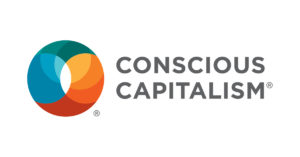How Businesses Can Help Alleviate Poverty

Philanthropy alone can’t change the world: Businesses need to step in
In his book, Winner Takes All: The Elite Charade of Changing the World, Anand Giridharadas explores the shortcomings of social impact efforts from today’s global elite. Published in October 2019, the book became a New York Times bestseller for its groundbreaking investigation of the realities behind even the best-intentioned and innovative philanthropic endeavors.
Giridharadas points to the fact that many philanthropists are giving back from fortunes built in questionable ways in the first place. They flaunt their corporate social responsibility despite the fact that their companies may have caused serious societal problems as they built their wealth. Asking the hard questions behind our current models of philanthropy, Girdharadas appeals to the need for new systems to change the world.
In the same month, Giridharadas released Winner Takes All, a Forbes article by William F. Meehan III expanded on the specific reasons philanthropy alone cannot alleviate poverty.
“Philanthropy can and does solve social problems,” writes Meehan. “But to do more than it does today, it needs to rethink all its basics.”
Outlining the main flaws of the current system, Meehan notes that only 4% of major donations go toward basic needs like food and shelter – with almost no funding dedicated to education or access to healthcare. Research shows that two of the main drivers of poverty are a lack of education and access to healthcare, but Meehan points out that America’s biggest donors are primarily funding the Arts. When gifts do go toward education, the majority are dedicated to colleges and universities over K-12 programs.
Another snag in the current system is the long and arduous process for procuring and giving grants. Due to the political bureaucracy at most foundations, the decision-making process can take a period of several months. According to Meehan, individual philanthropists aren’t significantly more effective than foundations, since (per Giridharadas) they often operate based on their own self interest or at the recommendation of another nonprofit leader.
Finally, one of the biggest problems with the current channels of philanthropy is that no one can agree on the best way to provide more accessible healthcare and education. The proposed reforms are varied and numerous, with little to no consensus. When it comes to improving education, however, the arguments become even more complicated, which in turn makes it difficult for donors to decide which causes to fund.
As an antidote to these complicated policies and procedures, social entrepreneurs are stepping in.. With a rise in conscious consumers, it is in businesses best interest to adapt conscious business practices. By thinking outside the box, socially conscious companies are creating solutions to address poverty on a global scale. While philanthropic efforts do address social issues, they alone cannot affect the change needed to alleviate poverty on the large scale required.
Businesses like Noonday Collection, for example, source handmade goods from artisans across the world for sale in the United States. By employing talented local artisans, such businesses empower local communities to grow sustainably by providing access to a global market.
At the same time, Noonday connects ethically-minded consumers to products that improve their lives. The beauty of operating in this middle space is that social entrepreneurs can take advantage of donor dollars while simultaneously generating revenue: their products create sustainable impact while their business becomes a return investment – the best of both worlds.
It’s just one small step toward alleviating poverty, but given the flaws and complications of current philanthropic efforts, small steps forward may just be the best solution it’s going to take collaborative, cohesive effort across all sectors to fully alleviate poverty
To learn more about why philanthropy alone is not working, here are a few resources:
- Anand Giridharadas: Winners Take All: The Elite Charade of Changing the World
- Rob Reich: Just Giving; Why Philanthropy is Failing Democracy and How it can Do Better
- Abdul Lati Jameel Poverty Action Lab: Founded by MIT’s Professor of Poverty Alleviation, Esther Duflo, and her partner, Abhijit Banerjee (also a professor at MIT), their research recently received a Nobel Prize for breakthrough anti poverty work in Economics.

